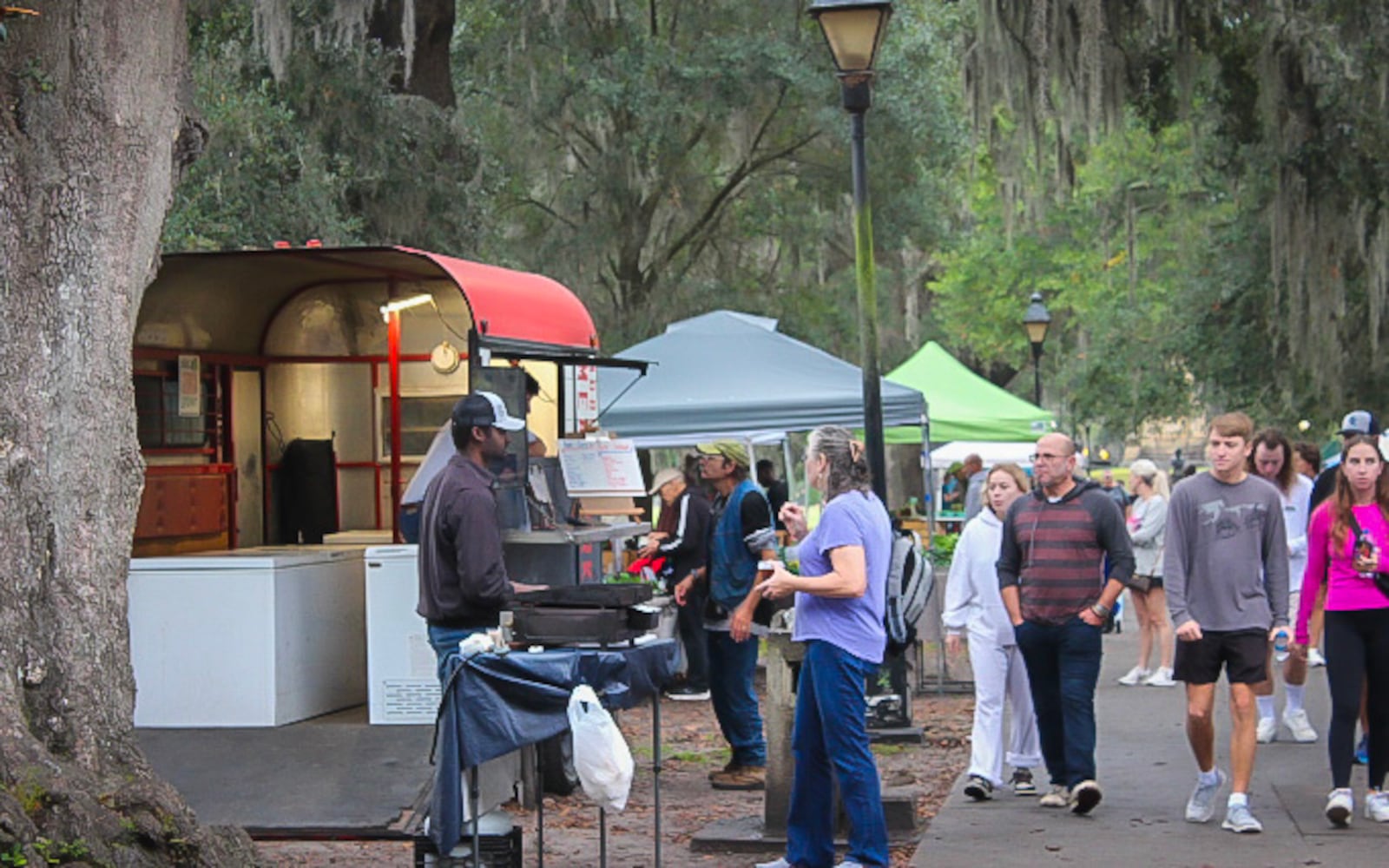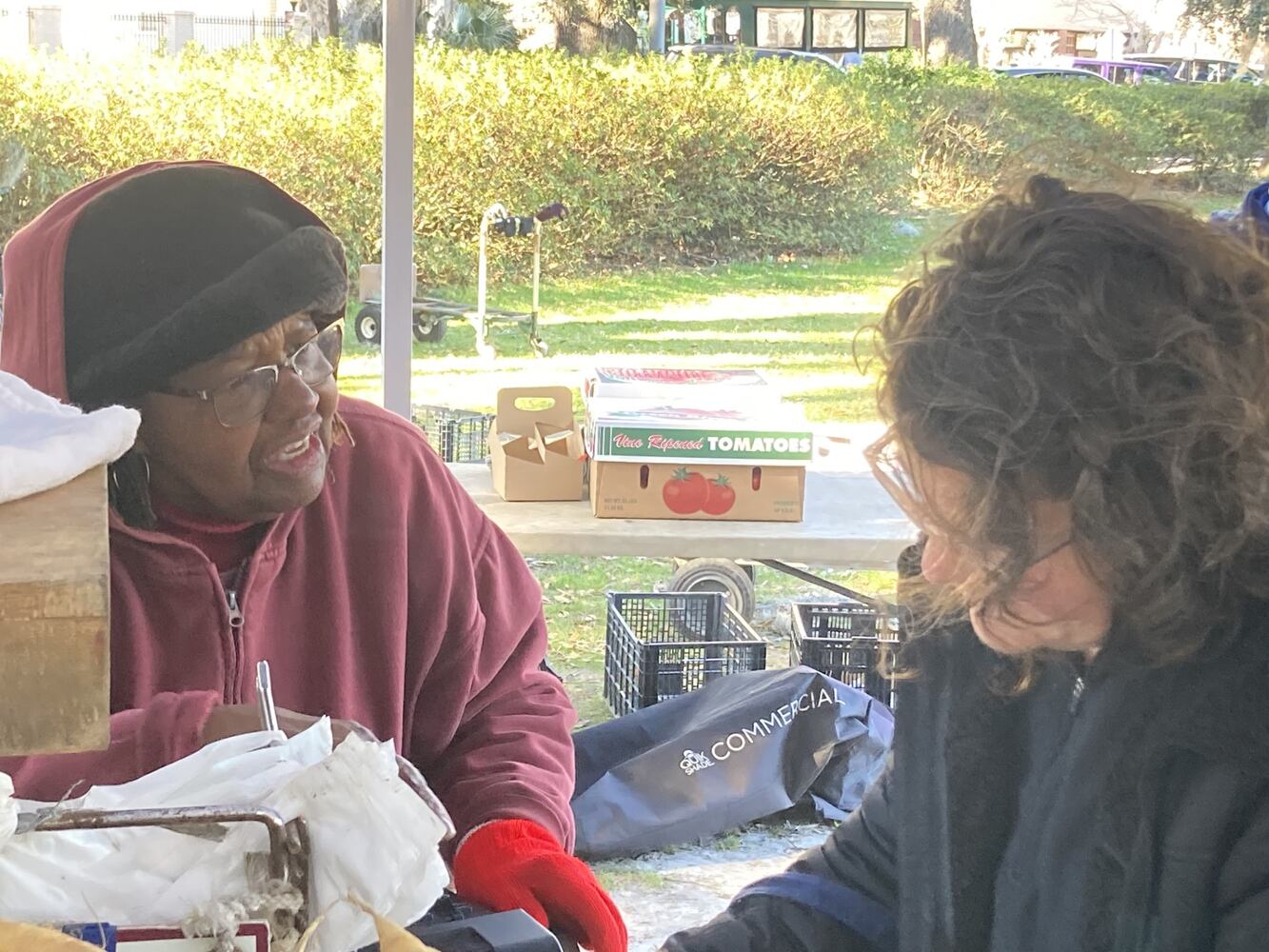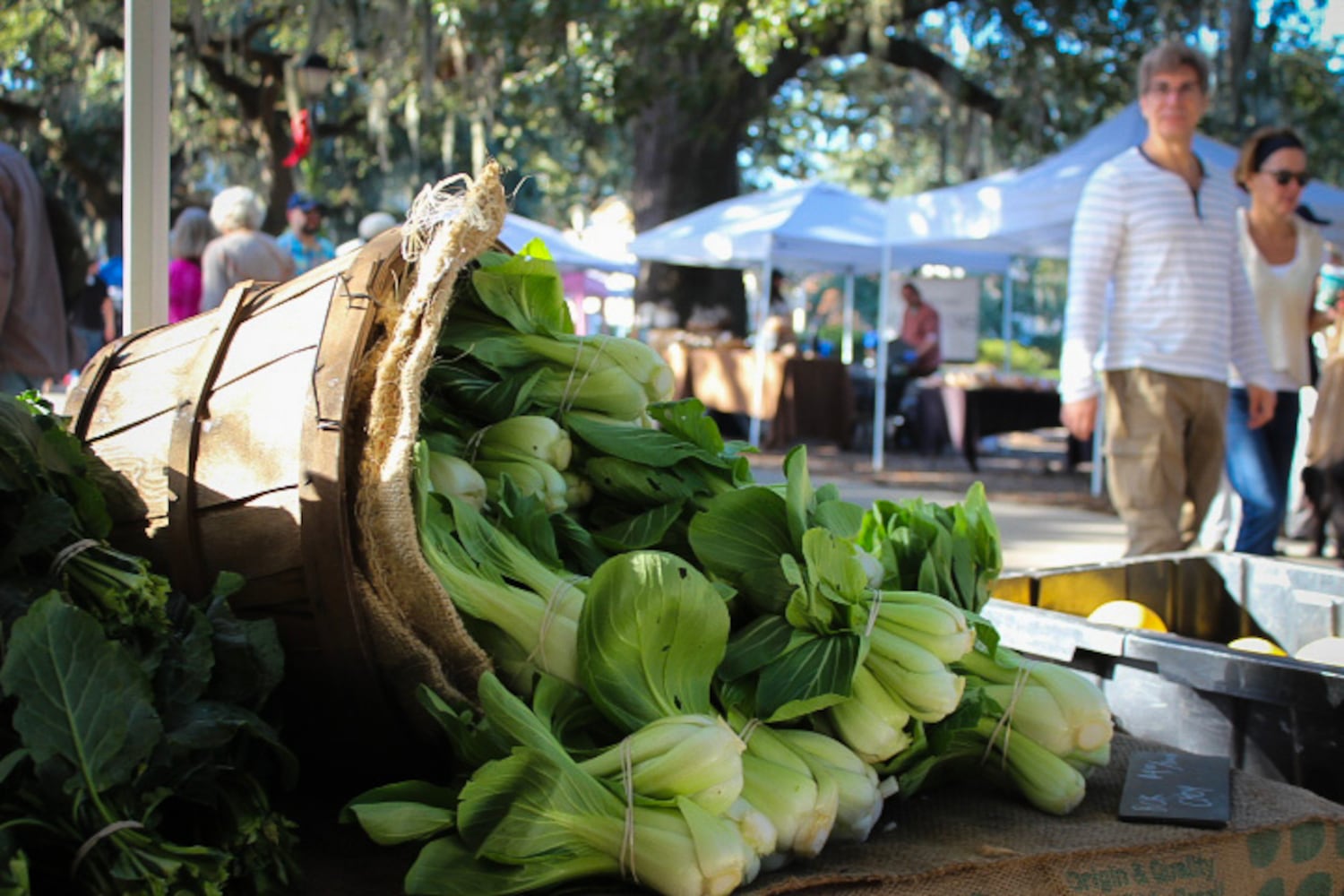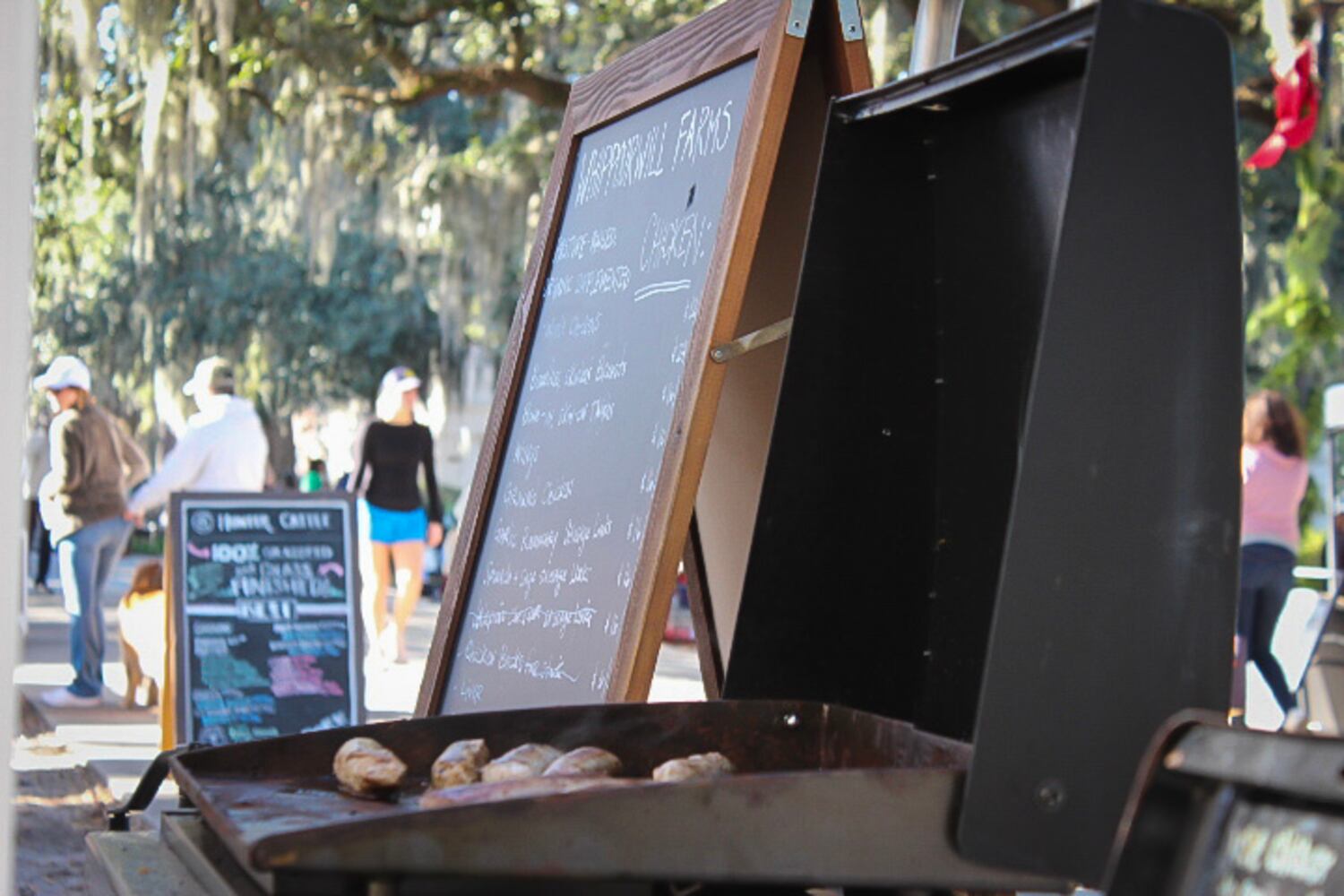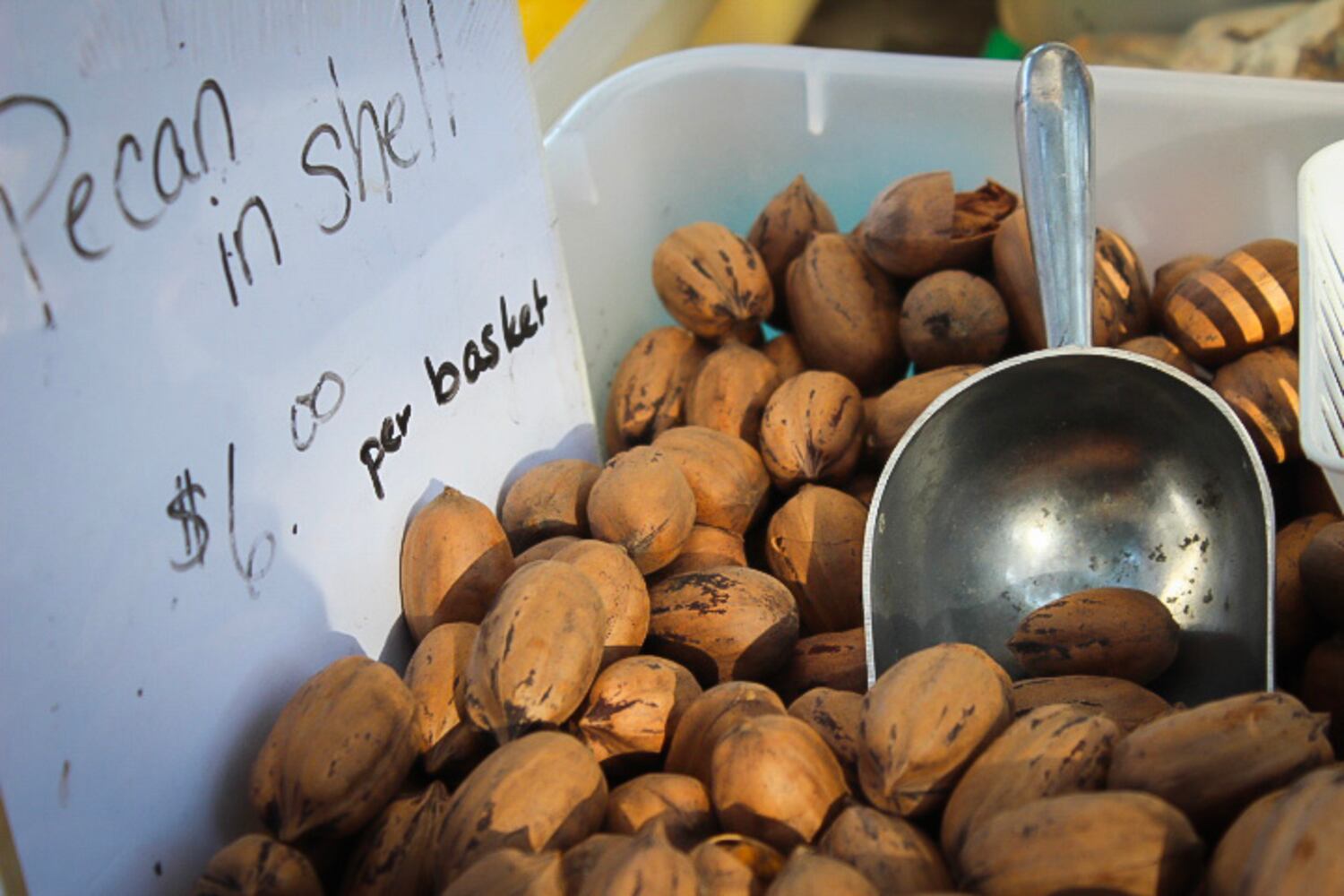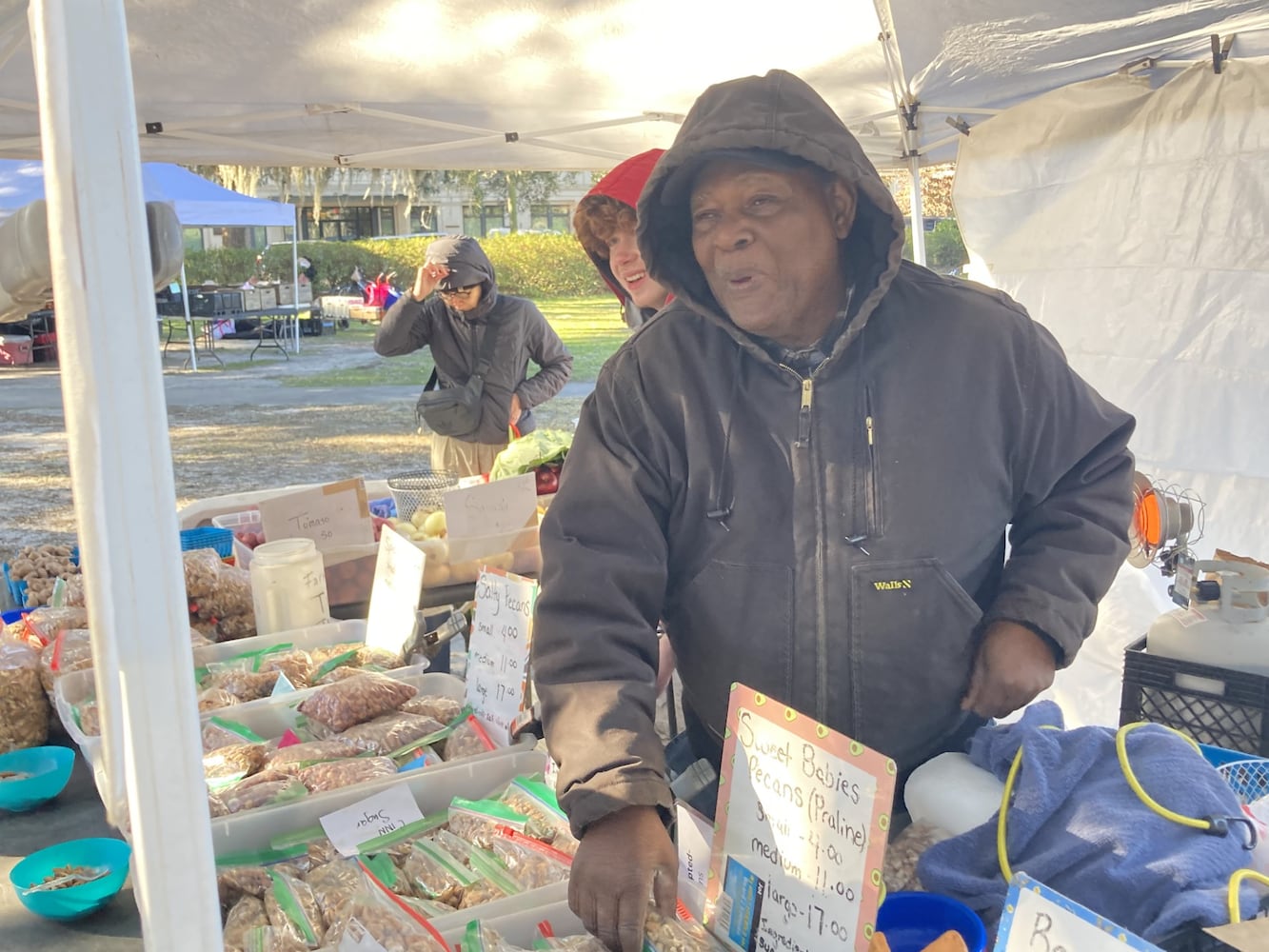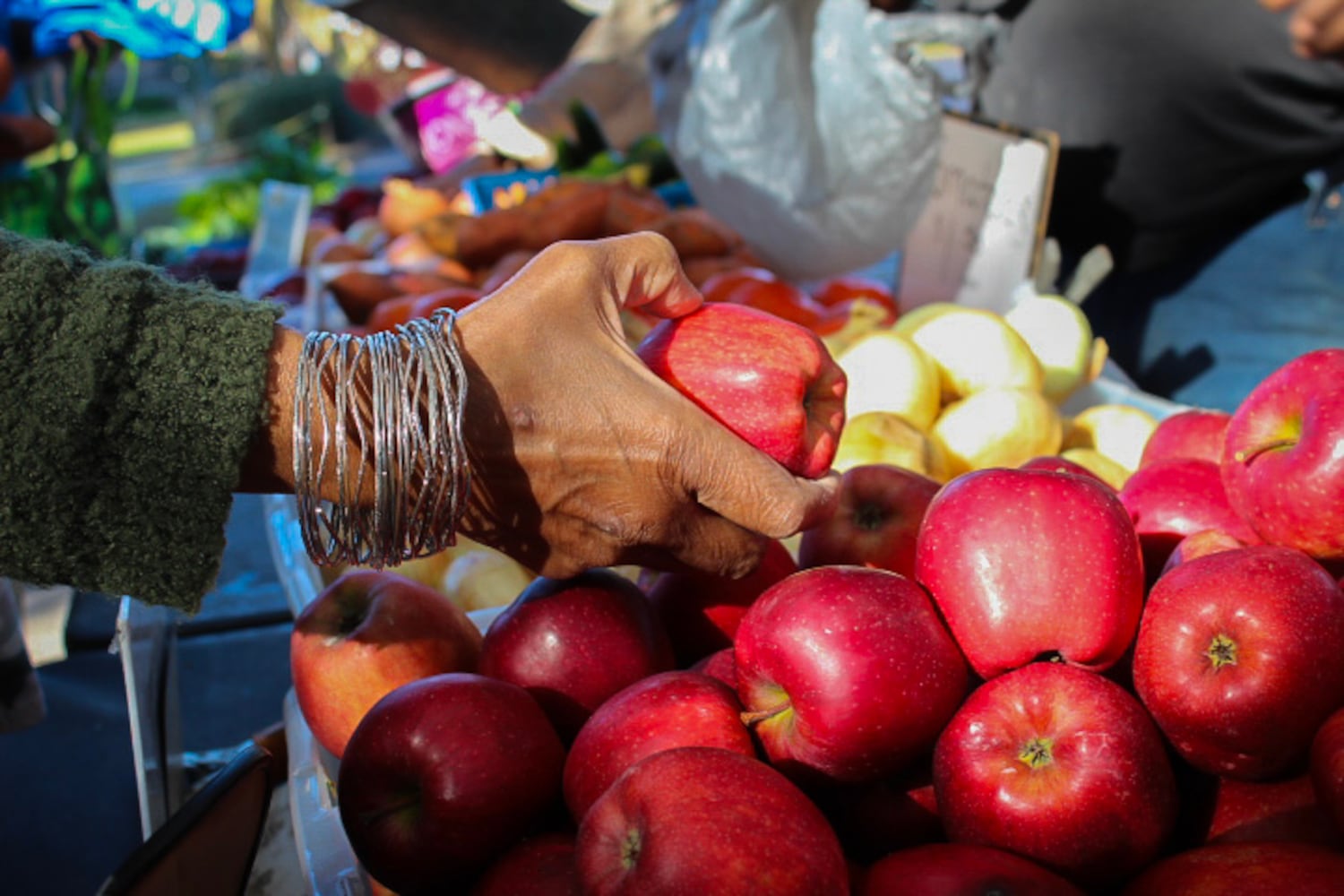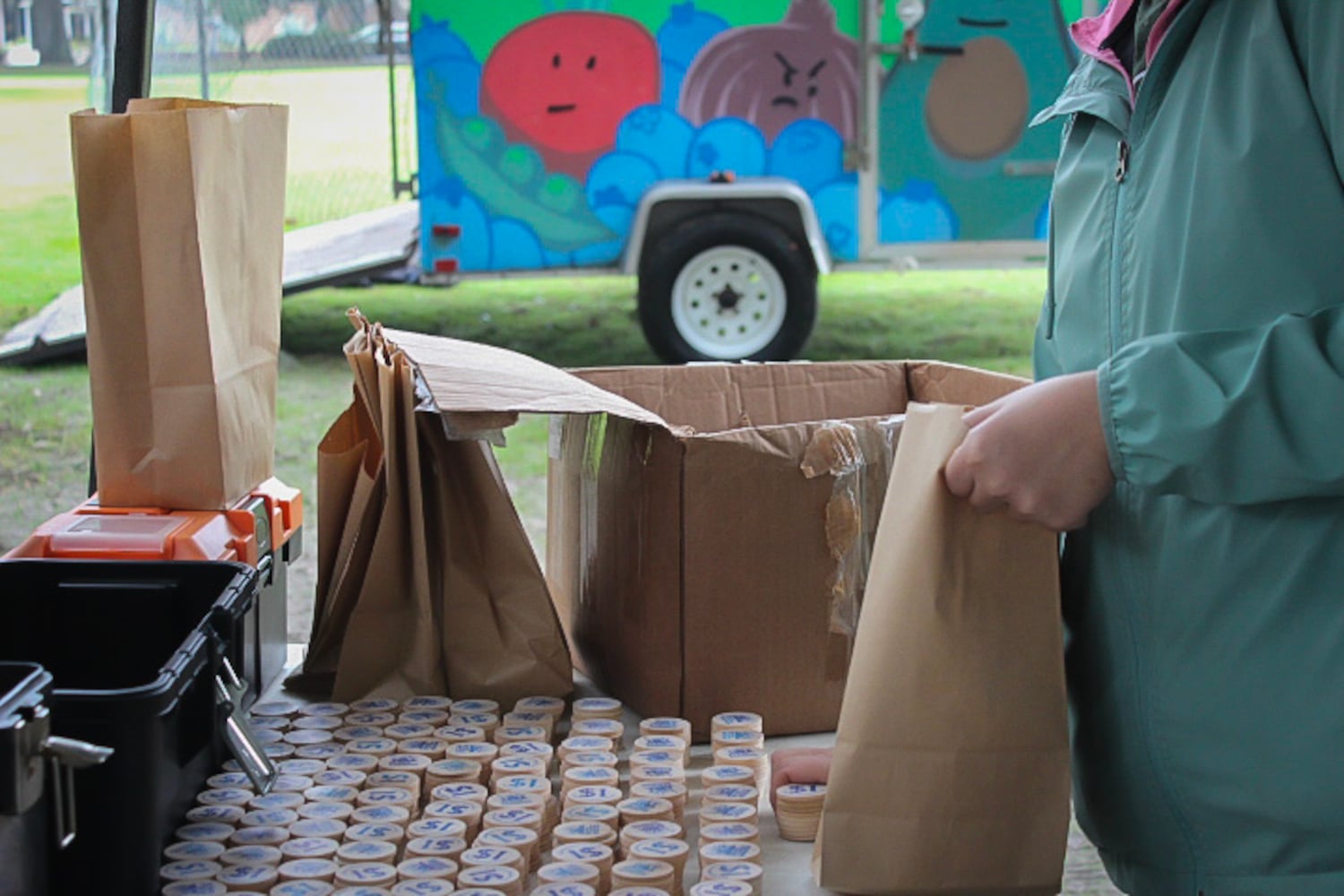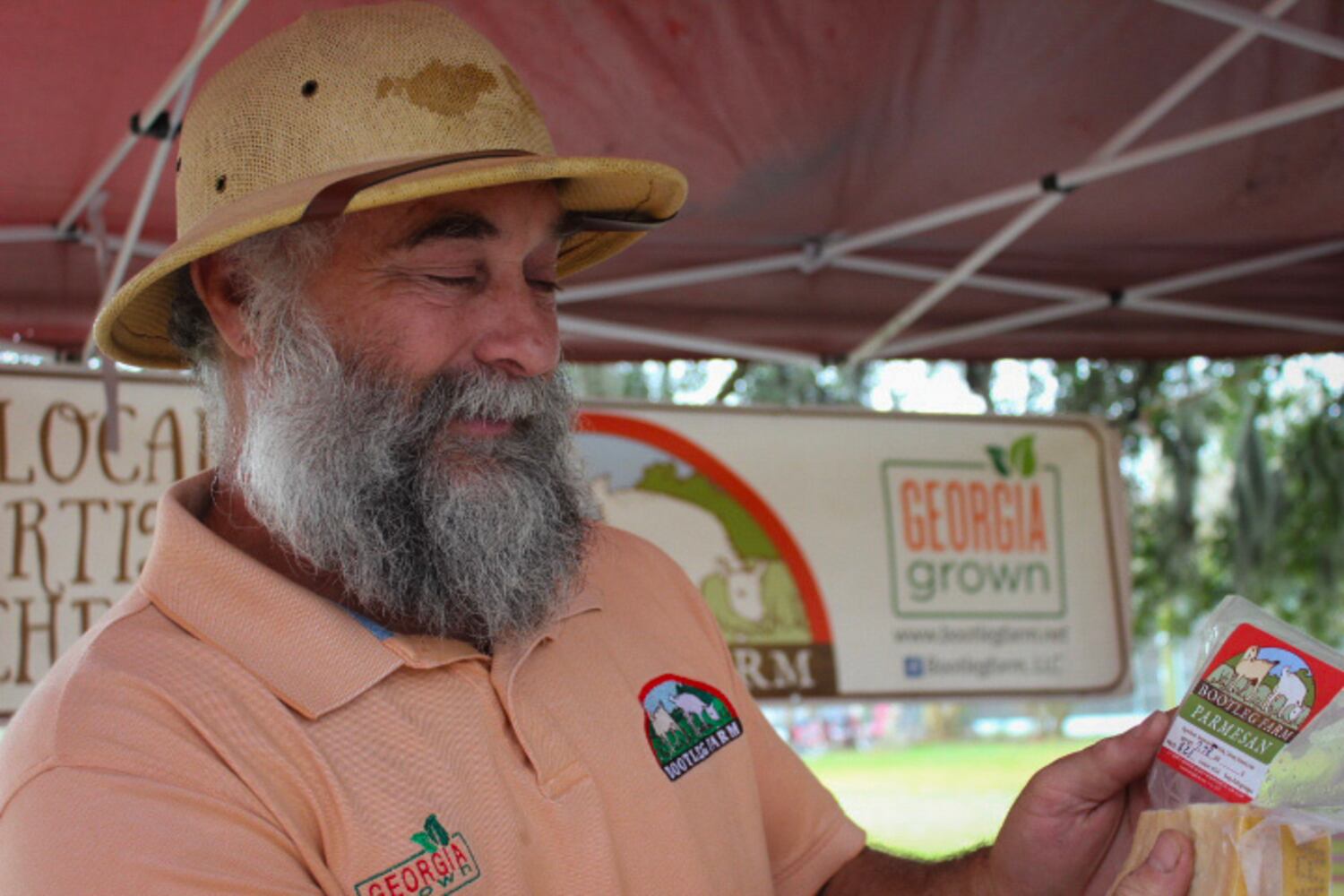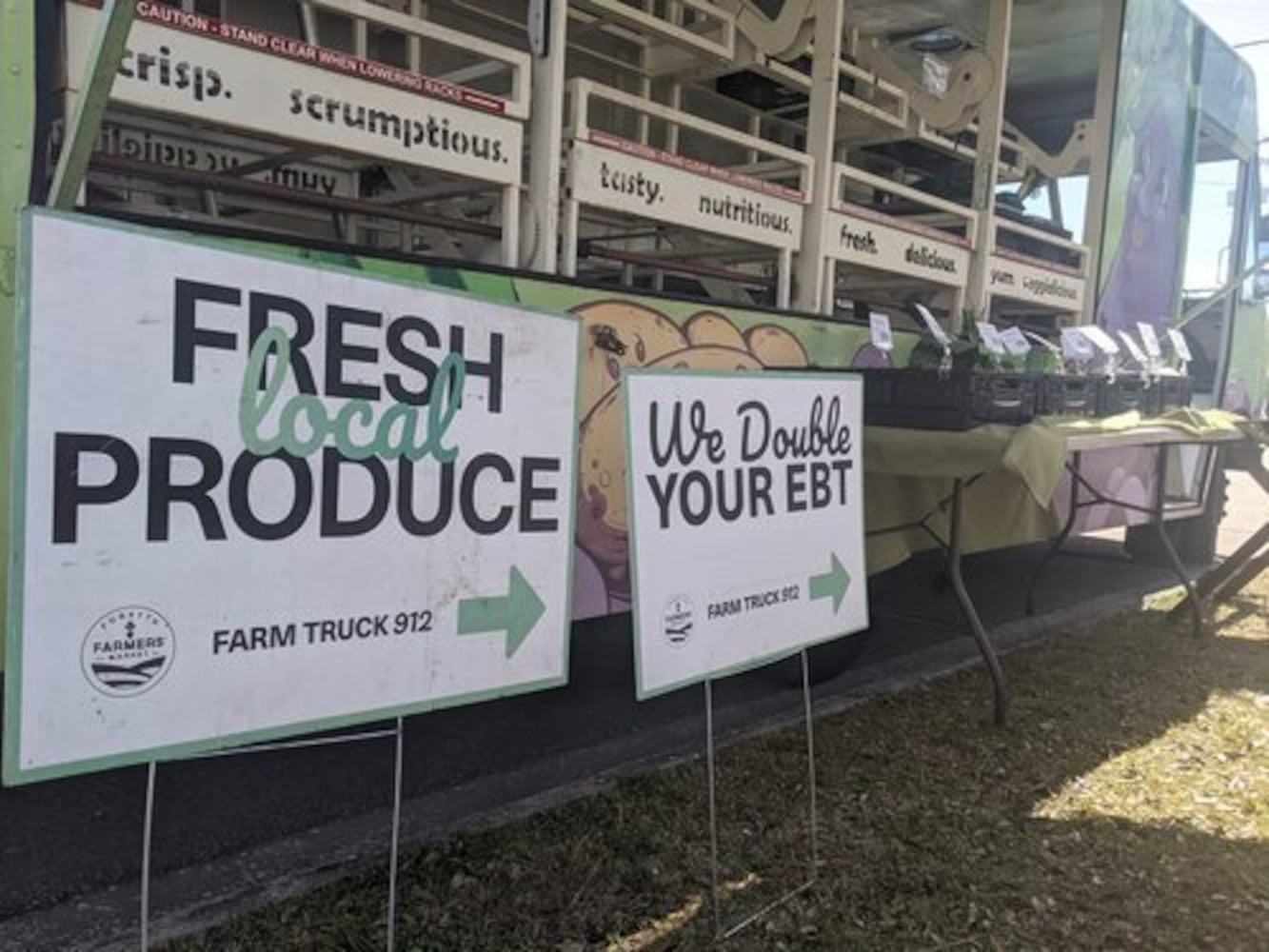SAVANNAH — The coldest Saturday morning in the 15-year history of the Forsyth Farmers’ Market couldn’t keep either the vendors or customers away.
Bundled up against the 20-degree temperatures, Savannahians made their rounds, buying produce, meat, cheese, coffee, nuts, seafood, bread and other food staples produced on farms in South Georgia and South Carolina’s Lowcountry. Market regulars dressed in parkas and ski hats and cradling hand warmers crowded the sidewalk even before the official opening at 9 a.m.
As the warming sun climbed higher in the skies, so too did the number of shoppers. For longtime vendors, such as “Miss Helen” Fields of Joseph Fields Farm and “Farmer Joe” King of C&S Farms, the consistent traffic is why they start every Saturday in this historic downtown park.
Credit: Adam Van Brimmer
Credit: Adam Van Brimmer
“There’s no such thing as a slow day here,” said Fields, who rises at 3 a.m. to commute from her 50-acre family farm outside Charleston, South Carolina to Savannah for the market. “A cold day like this, you put lot of clothes on and that takes care of that.”
Forsyth Farmers’ Market is as much a part of the Saturday morning routine in Savannah as church and brunch are on Sundays. As similar as the Forsyth market is to other food fairs across the country, this bazaar is special because of the role it has played in promoting healthy eating habits in neighborhoods across this socioeconomically diverse city and accelerating Savannah’s farm-to-table restaurant movement.
This synergy has made the market as iconic as the park it calls home, said Paula Kreissler, the executive director of Healthy Savannah, an organization set up by a former Savannah mayor in 2007 to address obesity.
“The Forsyth Farmers’ Market has been addressing nutrition insecurity since its inception and at the same time has been growing the agricultural economy in the region by sourcing only from local growers,” she said.
More than a farmers’ market
Serving as a community resource is Forsyth Farmers’ Market’s mission and why leaders do not limit the organization’s work to a four-hour-a-week, Saturday morning enterprise.
“There’s a misconception that we’re just a farmers’ market,” said Deidre Grim, the group’s executive director. “The community is what makes this organization at its best and has given it the ability to thrive.”
The growing nonprofit operates the Farm Truck 912 – with plans for a second – that calls on 28 neighborhoods weekly with fresh produce and other non-processed food. Forsyth Farmers’ Market also offers a smorgasbord of nutrition education programs, such as the 912 Food Farmacy, where attendees earn produce vouchers for coming to class. More than 1,000 Savannahians have participated in the monthly programs since their 2020 launch.
Credit: Forsyth Farmers Market
Credit: Forsyth Farmers Market
Improving the health of residents has been a theme since the market’s 2009 launch. The organization has always accepted food stamps, giving users vouchers to spend with vendors, and today doubles the value of the coupons.
Savannah’s grocery stores are concentrated in major commercial corridors beyond walking distance of most residential areas, particularly low-income neighborhoods. Many residents in these food deserts do their shopping in convenience stores and dollar stores where fresh produce and other healthy staples are scarce.
Part of expanding knowledge about nutrition is educating Savannahians on the region’s food culture. Grim grew up in South Carolina’s Gullah Geechee corridor, home to many descendants of enslaved Africans who worked coastal plantations prior to emancipation. Since being hired as Forsyth Farmers Market’s executive director in October 2023, Grim has worked to raise awareness of Gullah Geechee food traditions, even staging a Gullah Geechee Farmsgiving community brunch in early January.
She is planning similar events for the months ahead.
‘It’s about the goods’
Savannah restaurateur Josh Yates considers himself among the market’s first regulars, frequenting the food fair’s predecessor, a less formal event held in another part of the city under a different name – and before he and his wife opened their popular farm-to-table burger concept, Green Truck Pub.
The connections he made with vendors helped refine his vision for Green Truck. Shortly after organizers moved the market to Forsyth Park in 2009, he was shopping once morning when he struck up a conversation with the proprietor of Hunter Cattle Co., a livestock farm near Statesboro. He related to the vendor his intention to open a casual dining restaurant with locally sourced ingredients on the menu.
“He gave me a free sample of beef, and after I tried that, I wanted as many local products as I could get,” Yates said. “That became our niche and is part of the reason we were so successful from the start.”
In addition to Hunter Cattle beef, Green Truck Pub’s menu features produce from Miss Helen, pecans from Farmer Joe’s groves in Portal, a rural community near Statesboro, and cheeses from Bootleg Farm, a goat dairy located in Springfield on Savannah’s far outskirts.
Credit: Forsyth Markers Market
Credit: Forsyth Markers Market
Yates and his culinary peers make the Saturday sojourn to Forsyth every week now. He often sees Chef Kyle Jacovino of Pizzeria Vittoria and Common Thread’s Brandon Carter filling their baskets at the market. Kitchen staff from several restaurants that flank the park, such as the Sentient Bean coffeeshop and Betty Bombers sandwich shop, also stock up at the market.
“I feel like we’ve fanned the farm-to-table flames here in Savannah,” said Richard Cowart of Bootleg Farms.
Home cooks flock to the market as well to bring those restaurant-quality ingredients to their own kitchens.
“It’s about the goods: You buy a bag of lettuce at the grocery store and it’s rotten in two days, you buy one here and you can keep it for a week or two,” said Sandra Seifert, a market regular. “It’s just the quality and the variety. At home, we eat local and we eat seasonal.”
Forsyth Farmers’ Market
The market is held from 9 a.m. to 1 p.m. every Saturday of the year in the south end of Forsyth Park, near the intersection of Bull Street and Park Avenue. For more information and to learn about their programs, visit forsythfarmersmarket.com/.
Market history
Six Savannah women founded the Forsyth Farmers’ Market in 2009 with a vision for a local food system that is good for the health of all people and the environment. The market’s focus then and now is on food access and operating a producer-only market where all vendors must grow or make at least 75% of the goods they sell. Only food and plant vendors are allowed.
Forsyth was one of the first independent markets in the nation to accept food stamps for purchases and partners with Wholesome Wave Georgia to double the value of those vouchers. The Forsyth market frequently has the highest food stamp sales revenues among farmers’ market in the state, generating $61,000 in revenue in fiscal year 2023, according to figures posted on the organization’s website.
About the Author
